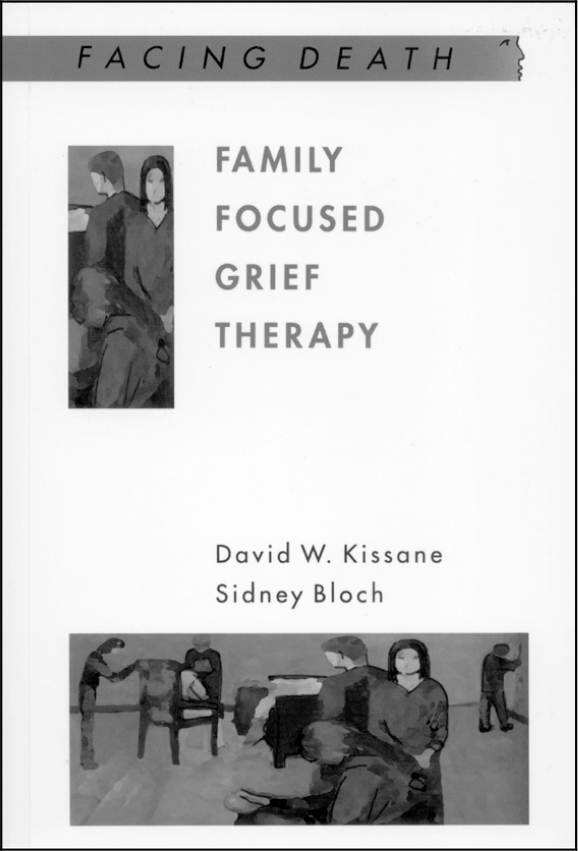
Death is not new; carefully conducted and well-presented research is a much less familiar achievement. You will not regret reading this book. The core of the book is the use of family focused grief therapy in a randomised, controlled trial extending over a 5-year period and involving 81 families. That project, the Melbourne Family Grief Studies, represents a tour de force. For those who have an appetite for figures and statistics, the authors have provided an appendix that contain data from their project.
Over nine chapters, Kissane and Bloch introduce the reader to the systemic family approach to the management of grief (in the setting of palliative care), the rationale to family focused grief therapy, their research methods (including The Family Relationships Index), and the possible applications of the therapy, as well as the challenges that might face those who use their model of intervention. They demonstrate persuasively that this time-limited therapy identifies the family as the unit of care and that it can be used in different socio-cultural and clinical settings. It is amenable to empirical evaluation, and it is securely wedded to theoretical constructs, particularly those associated with attachment theory. This is not a sterile text. The authors reify their theoretical principles and concepts by presenting relevant clinical cases, some of which are very complex. I particularly liked their willingness to describe frankly how the cases had been managed, whatever the outcome.
While the authors articulate how to use family focused grief therapy, they show no sympathy for those who seek a ‘therapy by numbers’ approach. The family focused grief therapy requires training and supervision, as well as an understanding of family dynamics and a willingness to deal with families sensitively and flexibly.
Just when you think you have grasped the essentials to family focused grief therapy, you are then challenged with the penultimate chapter, which is dedicated to ethical issues. This is not a litany of pious prescriptions. It is a thought-provoking chapter of value to any practitioner, whatever their theoretical persuasion. The preeminent injunction is ‘First do no harm’.
In conclusion, this book represents a genuine contribution to the repertoire of methods for helping families prior to and subsequent to the demise of a loved one. It is well written in an unpretentious and frank style. The authors’ wealth of clinical experience is evident in their writing, as is their ability to blend a scholarly and scientific approach with a compassionate and flexible clinical one.



eLetters
No eLetters have been published for this article.